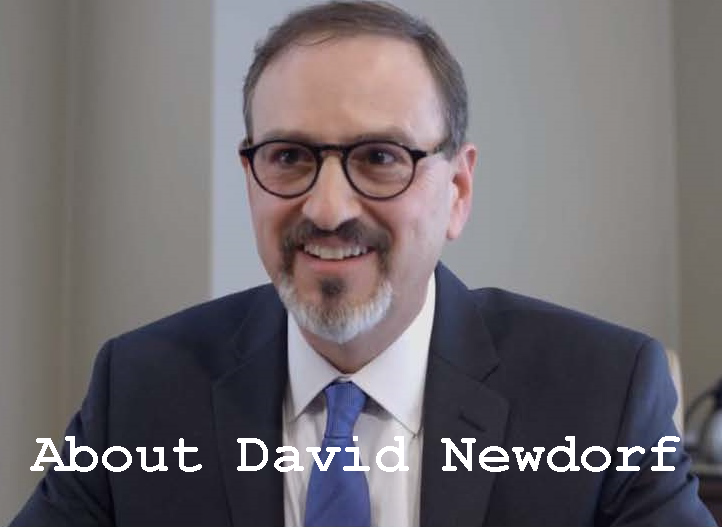How Are Court Budget Cuts Affecting Trial Dates? Too Soon to Tell.
May 19, 2012 by David Newdorf
Filed under Around the Courthouse
It is too soon to tell if California civil trials will become an endangered species, as many have predicted, due to court budget cuts.
After the governor announced yet another round of cuts for California courts, a San Francisco Superior Court judge told me civil trials will take five years to get to trial — the statutory maximum delay — because criminal cases take precedence. In my own recent experience, a civil case set for trial April 16, 2012 in S.F. Superior was continued for five months because there were no courtrooms available that week. That’s not all that unusual for the San Francisco civil courts, even before the cuts.
One recent change is the elimination of court reporters for most courtrooms in San Francisco, Alameda, Los Angeles and many other counties. Lawyers now need to arrange for their own court reporters.
On the other hand, lawyers may be reacting too much, too soon to the doom-and-gloom forecasts. I got the following e-mail message sent May 18, 2012 on behalf of Kelly Dermody, president of the Bar Association of San Francisco:
We have been meeting with our San Francisco Superior Court as it continues to respond and adapt to reduced resources and staffing. One of the messages we have heard from the Court is a concern that many litigants with trial dates are appearing on the day of trial unprepared to go forward, presumably because they have expected (erroneously) that no courtroom would be available due to budget cuts. . . . Accordingly, we hope you will spread the message widely that, at least for now, trial dates are holding and the Court expects (and the system needs) parties to be prepared for trial or to seek relief from trial dates sufficiently in advance of trial.
There you have it. Trials are still getting courtrooms — at least sometimes and at least for now. As I’ve often said, don’t assume your case is not going to start as scheduled. It’s a variant of Murphy’s Law. If you’re not ready for trial call, you are sure to be assigned a courtroom.
Which reminds me of a joke.
Woman (as it starts to rain): Why don’t you open your umbrella?
Man: It won’t help. It’s full of holes and leaky.
Woman: Then why did you bring it?
Man: I didn’t think it was going to rain.
About California Litigation Firm Newdorf Legal
David Newdorf is managing attorney of Newdorf Legal, which represents individuals, businesses and public entities in trials and appeals. The firm’s practice areas include business disputes, business torts/interference with contract, breach of contract, breach of fiduciary duty, fraud, investment disputes, real estate, commercial landlord-tenant cases, and municipal law.
Mr. Newdorf worked previously as a trial lawyer and team leader in the San Francisco City Attorney’s Office and was a litigation associate at a major international law firm. Mr. Newdorf was recently listed, for the second year in a row, in Northern California Super Lawyers magazine, an honor reserved for 5 percent of the State’s lawyers based on nomination by fellow lawyers and evaluation of professional reputation and achievement. In a more unusual accolade, Mr. Newdorf was named “Badass lawyer of the week” by The Recorder’s blog, LegalPad.
For all of your litigation questions, contact Newdorf Legal, a San Francisco business litigation law firm.
Where You Sue (or Get Sued) Matters
September 26, 2011 by David Newdorf
Filed under Lit Tip Of The Week:™ Practical Advice For Litigators
You may have a choice of courts in which to file your California personal injury or business claim.
Should you choose state or federal court? Which county or state or judicial district? These choices matter because of differing procedural rules, local procedures, and jury demographics. For example, federal court requires a unanimous jury to reach a verdict (even in a civil case), but only 9 jurors out of 12 are needed to reach a verdict in California state courts. Next to an outright defense verdict, a hung jury is generally the civil defendant’s next best outcome. Since hung juries are more likely in federal court (you only need one hold out juror), a defendant may have a good reason to remove a case from state to federal court.
Defendants benefit from federal court summary judgment procedures.
In U.S. District Court, the shorter notice periods for bringing summary judgment motions generally favor defendants. With four to five weeks from filing to hearing in federal court, plaintiffs may not have a chance to conduct discovery directed at issues and points raised in the motion. In California courts, the opposing party will have at least 60 days before its opposition is due. During this time, the plaintiff may serve written discovery requests and take depositions if needed to shore up the evidence in support of an essential element of plaintiff’s claim. Finally, federal judges have more latitude to grant partial summary judgment concerning discrete issues compared to the narrow grounds for summary adjudication under the California Code of Civil Procedure.
Choosing your jury pool
In state court, jury pools vary from county to county. Rural counties tend to provide more conservative jury pools, which often is reflected in defense verdicts or lower plaintiff’s verdicts. Urban counties generally are more plaintiff-friendly venues. But even within a metropolitan area, jury pools differ from county to county and courthouse to courthouse.
Lawsuit venue rules vary depending on the case
You may have little choice about where to file your action. For example, consumer collection actions can only be filed in the county where the contract was signed or the county where the defendant currently resides. A defendant may have the option to remove a lawsuit to federal court, but the removal petition must be filed within 30 days of service of the complaint. Where there’s a choice, the decision where to file can have a large effect on the ultimate outcome of litigation. Consult with an experienced business or personal injury attorney concerning these strategic decisions. If you are a transactional lawyer, you would be well advised to consult with (or refer your client to) a litigator regarding these strategic litigation calls.
About Newdorf Legal – a California
Business Litigation Law Firm
Newdorf Legal is the go-to small firm for big problems. When business executives and public officials face complex legal challenges, they turn to David Newdorf for advice and representation. The firm’s lawyers have significant experience in the private and public sectors handling high-profile litigation. Newdorf Legal provides business and public entity clients expert advice and representation in:
- business litigation
- commercial disputes
- California breach of contract lawsuits
- business torts/interference with contract
- real property litigation
- joint venture/partnership issues
- investor lawsuits
- fraud and other civil actions
For a free copy of our informative brochure, “The Top 10 Business Litigation Mistakes . . . and how to avoid them,” contact Newdorf Legal.
Call David Newdorf at (415) 357-1234 (or e-mail to info(at)newdorf.com) for all of your California complex litigation questions.









